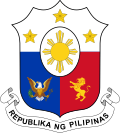By country
Afghanistan
Albania
Algeria
Ancient Rome
Andorra
Antigua and Barbuda
Argentina
Armenia
Australia
Austria
Austria (Republic)
Austria-Hungary (Monarchy)
Azerbaijan
Bahamas
Bahrain
Bangladesh
Barbados
Belarus
Belgium
Belize
Benin
Bhutan
Bolivia
Bosnia and Herzegovina
Botswana
Brazil
British Empire
Brunei
Bulgaria
Burma
Cambodia
Cameroon
Canada
Chile
China
Colombia
Comoros
Confederate States
(Democratic Republic of the) Congo
Croatia
Cuba
Cyprus
Czech Republic
Czechoslovakia
Denmark
Dominica
Dominican Republic
Ecuador
Egypt
El Salvador
Estonia
Ethiopia
Fiji
Finland
France
Gabon
Georgia (country)
Germany
Germany (Federal Republic)
German Democratic Republic (East Germany)
Germany (Third Reich)
Germany (Empire)
Ghana
Greece
Greenland
Guatemala
Guinea
Equatorial Guinea
Guyana
Haiti
Holy See
Hong Kong
Hungary
Iceland
India
Indonesia
Iran
Iraq
Ireland
Israel
Italy
Ivory Coast
Jamaica
Japan
Jordan
Kazakhstan
Kenya
Kiribati
Korea
North Korea
South Korea
Kosovo
Kuwait
- Category:Orders, decorations, and medals of Kuwait
-
 Wisam al-Tahrir (or Kuwait Liberation Medal)
Wisam al-Tahrir (or Kuwait Liberation Medal)
Kyrgyzstan
Latvia
Lebanon
Liberia
Libya
Liechtenstein
Lithuania
Luxembourg (Monarchy)
Macau
Madagascar
Malawi
(Federation of) Malaya
Malaysia
Mali
Malta
Mauritius
Mexico
Moldova
Monaco
Mongolia
Montenegro
Morocco
Mozambique
Myanmar
Namibia
- Decorations
- Namibian Cross for Bravery in Gold
- Order of Mukorob
- Namibian Cross for Bravery in Silver
- Namibian Cross for Bravery in Bronze
- Campaign Medal(s)
- Campaign Medal
- Long Service Medals
- Service Medal: 30 Years
- Service Medal: 20 Years
- Service Medal: 10 Years
- Shooting Medal(s)
- Namibian Champion Shot Medal
Nepal
Netherlands
- Knightly military Orders
- Military Order of William
- Order of Orange-Nassau (Military division)
- Decorations
- Cross for Courage and Fidelity (Not awarded anymore)
- Honorary Sabre (Not currently awarded)
- Honorable Mention (Obsolete)
- Bronze Lion
- Bronze Cross
- Cross of Merit
- Airman's Cross
- Decoration of Merit
- Decoration for Important Military Acts (Not currently awarded)
- Lombok Cross (Not awarded anymore)
- War Remembrance Cross (Not awarded anymore)
- Decoration for Order and Peace (Not awarded anymore)
- New Guinea Remembrance Cross (Not awarded anymore)
- Mobilisation War Cross (Not awarded anymore)
- Cross for Justice and Freedom
- Remembrance Medal UN Peace Operations (Not awarded anymore)
- Remembrance Medal Multinational Operations (Not awarded anymore)
- Remembrance Medal Peace Operations
- Kosovo Medal
- Decoration for Long-term Service as an Officer
- Decoration for Long-term and Loyal Service at the Military Coastguard
- Decoration Master-Marksman
- Skills Medal KNIL (of the Royal Dutch East Indies Army – Not awarded anymore)
- Shooting Price Star (of the Royal Dutch East Indies Army – Not awarded anymore)
- Army Medal
- Cross for the Four Day Marches
New Zealand
Nigeria
North Macedonia
Norway
Oman
Ottoman Empire
Palestine
Pakistan
Panama
Papua New Guinea
Peru
Philippines
Awards and decorations of the Armed Forces of the Philippines
Poland
Portugal
Puerto Rico
Qatar
Rhodesia
Military decorations and medals awarded during the UDI (Unilateral Declaration of Independence) period from 1965 to 1979. See also Zimbabwe.
- Decorations
- Grand Cross of Valour (GCV) (1970–1981)
- Order of the Legion of Merit: Military Division (1970–1981)
- Silver Cross of Rhodesia (SCR) (1970–1981)
- Bronze Cross of Rhodesia (BCR) (1970–1981)
- Defence Cross for Distinguished Service (DCD) (1976–1981)
- Meritorious Conduct Medal (MCM) (1970–1981)
- Medal for Meritorious Service (MSM) (1973–1981)
- Defence Forces' Medal for Meritorious Service (DMM) (1971–1981)
- Campaign Medals
- Rhodesia General Service Medal (1969)
- Long Service Medals
- Exemplary Service Medal (1970–1981)
- Medal for Territorial and Reserve Service (1970–1981)
- Shooting Medals
- President's Medal for Shooting (1970–1981)
- Other Awards
- Military Forces Commendation (emblem) (1970–1981)
Romania
Russian Federation
- Honorary titles
- Orders
- Order of St. Andrew (highest civil and military award)
- Order of Saint George (highest military award)
- Order of Merit for the Motherland
- Order of Courage
- Order of Zhukov
- Order of Suvorov
- Order of Ushakov
- Order of Kutuzov
- Order of Alexander Nevsky
- Order of Nakhimov
- Order of Naval Merit
- Order of Military Merit
- Medals
- Medal of the Gold Star (for the title "Hero of the Russian Federation")
- Medal of the Order of Merit for the Motherland
- Medal "For Courage"
- Medal of Suvorov
- Medal of Nesterov
- Medal of Ushakov
- Medal of Zhukov
- Medal "For Distinction in the Protection of the State Borders"
- Medal "For Distinction in the Protection of Public Order"
Rwanda
Saint Lucia
Samoa
San Marino
Saudi Arabia
- Category:Orders, decorations, and medals of Saudi Arabia
- Nuth al-Tahrir al-Kuwait (or Medal for the Liberation of Kuwait)
Senegal
Serbia
Sierra Leone
Singapore
Slovakia
Slovenia
Solomon Islands
Somalia
South Africa
Soviet Union
Spain


Kingdom of Spain
- Laureate Cross of Saint Ferdinand
- Medalla Militar (Military Medal)
- Cruz de Guerra (War Cross)
- Medalla del Ejército (Army Medal)
- Medalla Naval (Navy Medal)
- Medalla Aérea (Air Force Medal)
- Orden del Mérito Militar (Order of Military Merit)
- Orden del Mérito Naval (Order of Naval Merit)
- Orden del Mérito Policial (Order of Policial Merit)
- Orden del Mérito Aeronáutico (Order of Air Force Merit)
- Real y Militar Orden de San Hermenegildo (Royal & Military Order of Saint Hermenegildo)
- Cruz a la Constancia en el Servicio (Long Military Service Cross)
- Medalla de Campaña (Campaign Medal)
Second Spanish Republic
- Laureate Plate of Madrid
- Madrid Distinction
- Order of the Spanish Republic
- Medal of the International Brigades
- Medalla al Valor (Medal of Valor)
- Medalla de la Libertad (Medal of Freedom)
- Medalla de Sufrimientos por la Patria (Medal of the Suffering for the Fatherland)
- Medalla de la Segunda Guerra de la Independencia (Medal of the Second War of Independence)
Reference: Segunda República (1931–1939)
Sri Lanka
Suriname
Swaziland
- Decorations
- Umbutfo Swaziland Defence Force Medal for Distinguished Service (1980–present)
- Umbutfo Swaziland Defence Force Medal for Meritorious Service (1980–present)
- Long Service Medals
- Umbutfo Swaziland Defence Force Long Service Medal (1980–present)








